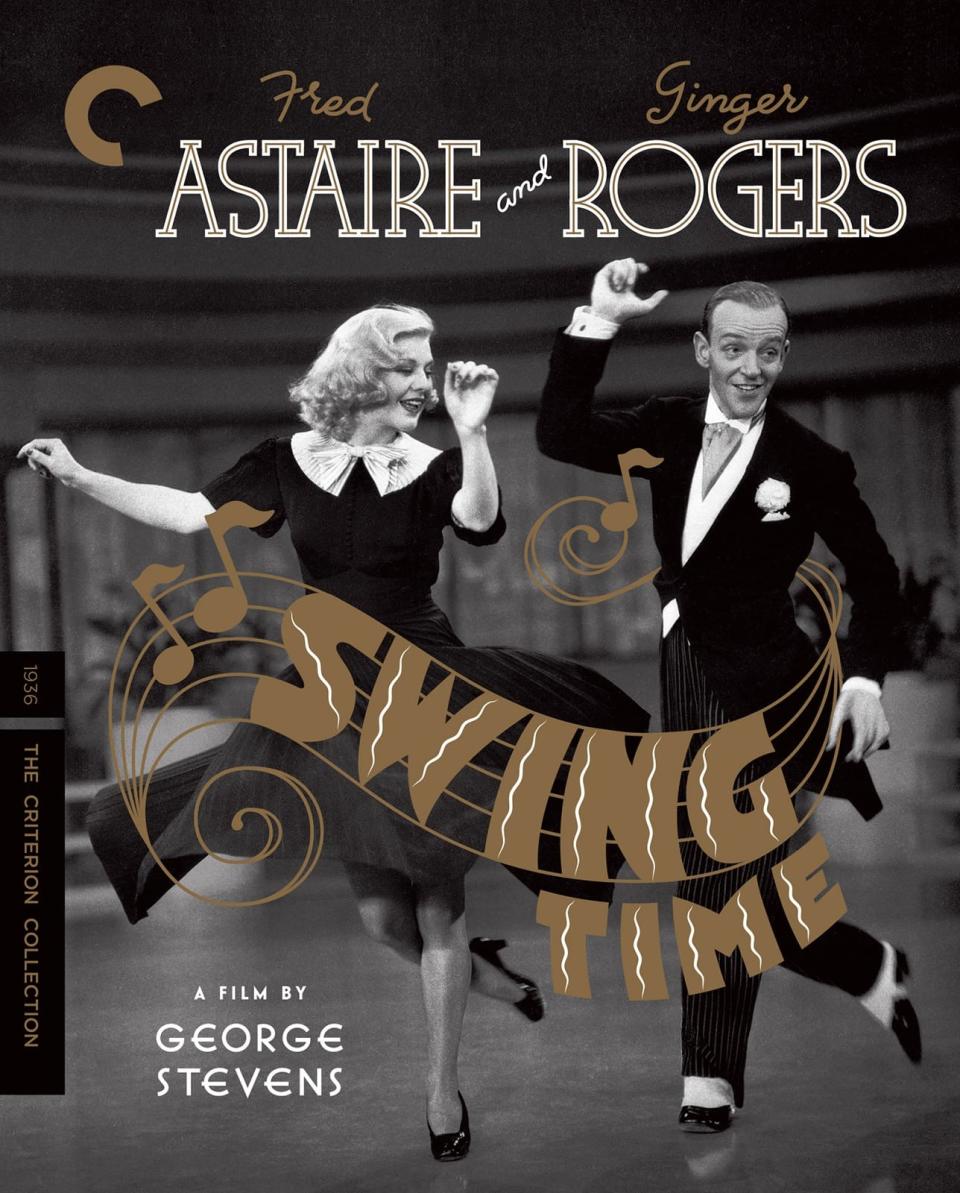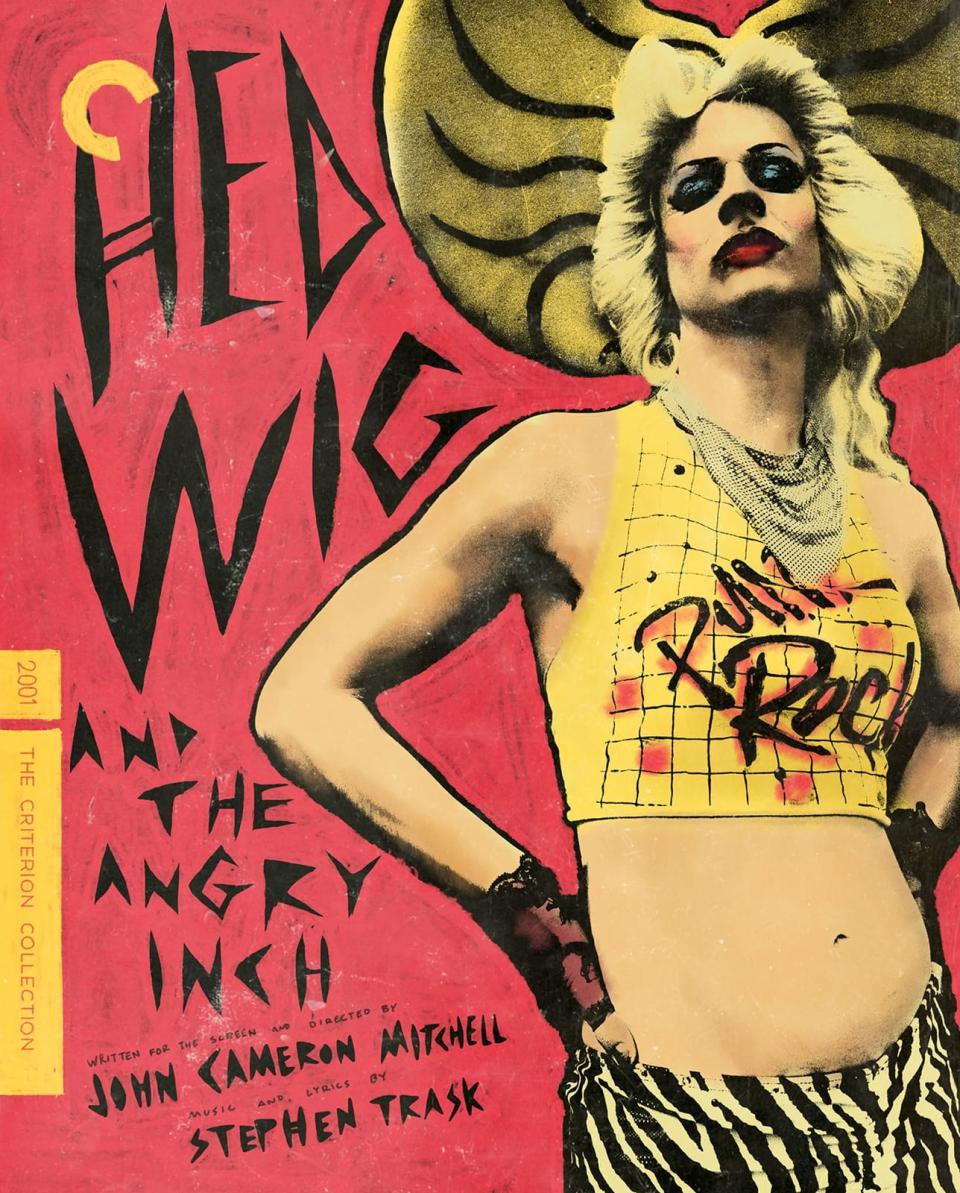‘Hedwig and the Angry Inch,’ ‘War and Peace’ Joining the Criterion Collection

In good news for fans of Ingmar Bergman and Bruno Dumont, the Criterion Collection has announced its June titles. Three from the Swedish master (“Through a Glass Darkly,” “Winter Light,” and “The Silence”) are making the upgrade from DVD to Blu-ray, with Dumont’s “La vie de Jésus” and “L’humanité” making their Criterion debut. Also joining the collection are John Cameron Mitchell’s “Hedwig and the Angry Inch,” George Stevens’ “Swing Time,” and Sergei Bondarchuk’s epic adaptation of “War and Peace.”
More information below, as well as the ever-alluring cover art:
Related stories
'The Princess Bride' Is Joining the Criterion Collection Alongside 'Sisters' and 'Shampoo'
'The Tree of Life' Is Coming to the Criterion Collection With 50 Minutes of New Footage
'sex, lies, and videotape,' 'Bull Durham,' and More Joining the Criterion Collection in July
Read More:David Lynch and Criterion Releasing 51 Minutes of Lost Footage From ‘Blue Velvet’
A Film Trilogy by Ingmar Bergman

In 1960, Swedish director Ingmar Bergman began work on three of his most powerful and representative films, eventually recognized as a trilogy. Already a figure of international acclaim for such masterpieces as The Seventh Seal and The Magician, Bergman turned his back on the expressionism of his fifties work to focus on a series of chamber dramas exploring belief and alienation in the modern age. Collaborating with the distinguished cinematographer Sven Nykvist, and eliciting searing performances from his refined cast of regulars — Harriet Andersson, Gunnar Björnstrand, Gunnel Lindblom, Ingrid Thulin, and Max von Sydow among them — Bergman unleashed ‘Through a Glass Darkly,’ ‘Winter Light,’ and ‘The Silence’ in rapid succession, exposing moviegoers worldwide to a new level of intellectual and emotional intensity. Drawing on Bergman’s own upbringing and ongoing spiritual crises, the films of the trilogy examine the necessity of religion and question the promise of faith.
“Swing Time”

In this irresistible musical, the legendary dancing duo Fred Astaire and Ginger Rogers are at the pinnacle of their art as a feckless gambler and the shrewd dancing instructor in whom he more than meets his match. Director George Stevens laces their romance with humor and clears the floor for the movie’s showstopping dance scenes, in which Astaire and Rogers take seemingly effortless flight in a virtuosic fusion of ballroom and tap styles. Buoyed by beloved songs by Dorothy Fields and Jerome Kern-including the Oscar-winning classic ‘The Way You Look Tonight’ — ‘Swing Time’ is an exuberant celebration of its stars’ chemistry, grace, and sheer joy in the act of performance.
“Hedwig and the Angry Inch”

With this trailblazing musical, writer-director-star John Cameron Mitchell and composer-lyricist Stephen Trask brought their signature creation from stage to screen for a movie as unclassifiable as its protagonist. Raised a boy in East Berlin, Hedwig (Mitchell) undergoes a traumatic personal transformation in order to emigrate to the U.S., where she reinvents herself as an “internationally ignored” but divinely talented rock diva, characterized by Mitchell as a “beautiful gender of one.” The film tells Hedwig’s life story through her music, an eclectic collection of original punk anthems and power ballads by Trask, matching them with a freewheeling cinematic mosaic of music-video fantasies, animated interludes, and moments of bracing emotional realism. A hard-charging song cycle and a tender character study, ‘Hedwig and the Angry Inch’ is a tribute to the transcendent power of rock and roll.
Read More:Criterion Launches Independent Streaming Service The Criterion Channel
“La vie de Jésus”

With his stunning debut feature, the risk-taking auteur Bruno Dumont immediately established his reputation as both a spiritual heir to Robert Bresson and an uncompromising iconoclast on the cutting edge of French cinema. Blending unflinching realism with moments of startling, light-filled beauty, ‘La vie de Jésus’ finds unexpected philosophical richness in the quotidian, small-town existence of Freddy (nonprofessional David Douche in a revelatory, one-off performance), an aimless young man with epilepsy who, in his childlike simplicity, embodies both great tenderness and terrifying brutality. Leaving the film’s cryptic title tantalizingly open to interpretation, Dumont dares viewers to see the divine in a seemingly dead-end world.
“L’humanité”

The transcendent second feature by Bruno Dumont probes the wonder and horror of the human condition through the story of a profoundly alienated police detective (the indelibly sad-eyed Emmanuel Schotté, winner of an upset best actor prize at Cannes for his first film performance) who, while investigating the murder of a young girl, experiences jolting, epiphanous moments of emotional and physical connection. Demonstrating Dumont’s deftness with non-actors and relentlessly frank depiction of bodies and sexuality, ‘L’humanité’ is at once an idiosyncratic police procedural and a provocative exploration of the tension between humankind’s capacity for compassion and our base, sometimes barbarous animal instincts.
“War and Peace”

At the height of the Cold War, the Soviet film industry set out to prove it could outdo Hollywood with a production that would dazzle the world: a titanic, awe-inspiring adaptation of Leo Tolstoy’s classic tome in which the fates of three souls-the blundering, good-hearted Pierre; the heroically tragic Prince Andrei; and the radiant, tempestuous Natasha-collide amid the tumult of the Napoleonic Wars. Employing a cast of thousands and an array of innovative camera techniques, director Sergei Bondarchuk conjures a sweeping vision of grand balls that glitter with rococo beauty and breathtaking battles that overwhelm with their expressionistic power. As a statement of Soviet cinema’s might, ‘War and Peace’ succeeded wildly, garnering the Academy Award for best foreign-language film and setting a new standard for epic moviemaking.
Sign up for Indiewire's Newsletter. For the latest news, follow us on Facebook, Twitter, and Instagram.

